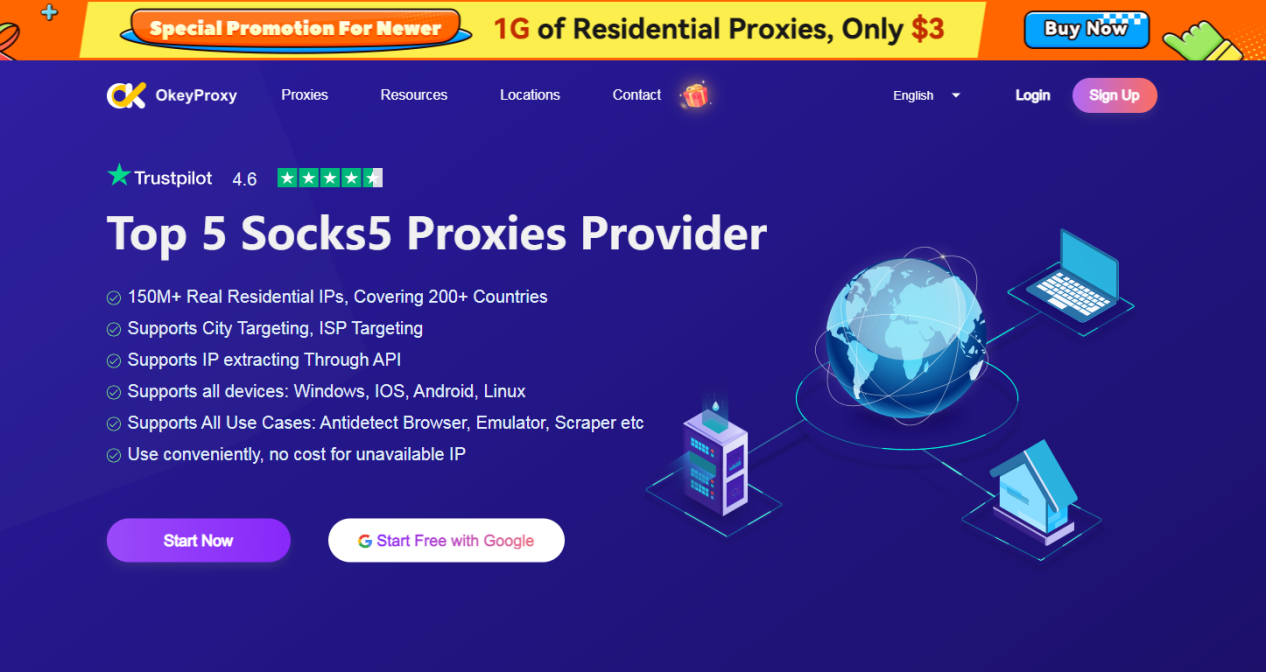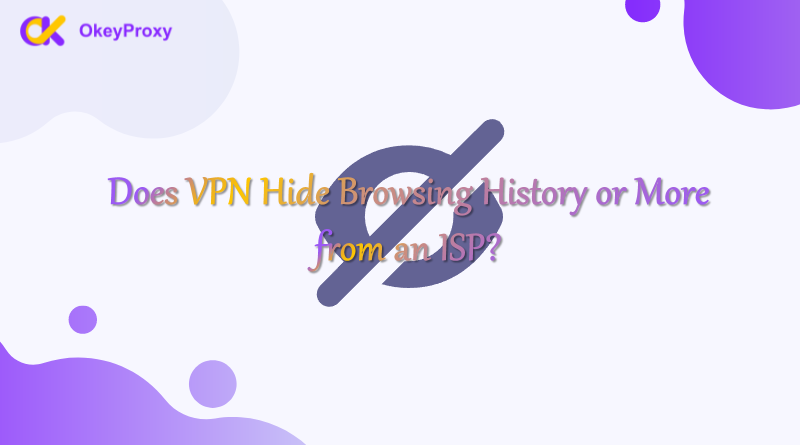No single tool can offer absolute anonymity, however, a thoughtful combination of privacy solutions creates a safer and more secure online experience. A VPN (Virtual Private Network) is an effective tool that can partially hide browsing activity from an Internet Service Provider (ISP), but it’s essential to understand the nuances of how this works.
What Does a VPN Do?
A VPN serves as a secure intermediary between a user’s device and the internet.
-
Encrypting Data: A VPN encrypts internet traffic, making it unreadable to the ISP. This means that the ISP cannot see the exact websites visited or the data transmitted between a user and the sites. Instead, they only see that the user is connected to a VPN server.
-
Hiding IP Address: A VPN hides the user’s real IP address, replacing it with the VPN server’s IP address. This helps obscure the user’s physical location and identity online.
-
Rerouting Traffic: All internet traffic is routed through the VPN server, preventing ISPs from directly seeing the websites or services being accessed.
What Can an ISP See Under VPN?
A VPN significantly reduces the amount of information an ISP can access. However, it does not make the user entirely invisible to the ISP. Below is a breakdown of what ISPs can and cannot see:
What ISPs Cannot See When VPN is Used
-
Exact Browsing Activity: ISPs cannot see specific websites visited or the content of the communication, as the traffic is encrypted.
-
Search Queries: If DNS requests are routed through the VPN’s private DNS servers, ISPs cannot see search queries.
-
Destination Servers: The final destination of user traffic (e.g., the website or service being accessed) is hidden from the ISP.
What ISPs Can Still See Using a VPN
-
VPN Connection: ISPs can detect that a user is connected to a VPN server based on the encrypted traffic and the server’s IP address.
-
Traffic Volume: ISPs can monitor how much data is being sent and received, even if they cannot see the content.
-
VPN Protocols: Advanced ISPs may identify the type of VPN protocol in use (e.g., OpenVPN, WireGuard).
Will VPN Hide Fully Browsing History From ISP?
VPNs encrypt all data that passes through their network, therefore, browsing history in terms of visited websites and activity is hidden from the ISP when using a VPN. However, while a VPN hides much of the browsing activity from ISPs, it does not provide total anonymity. Below are some important considerations:
-
VPN Providers Keep Browsing Activity
The encrypted traffic passes through the VPN server, meaning the provider has the ability to log websites visited, timestamps, and other metadata. To mitigate this, choose a reputable VPN provider with a strict no-logs policy, independently audited privacy practices, and private DNS servers.
-
Third-Party Tracking Still Possible
Websites, search engines, and advertisers can still track online behavior through cookies, browser fingerprints, and other methods. Using tools like privacy-focused browsers (e.g., Brave or Tor) and tracker-blocking extensions can add an extra layer of privacy.
-
DNS Leaks
Some VPNs may fail to properly route DNS queries through their servers, leading to DNS leaks where ISPs can still see the websites visited. A high-quality VPN should offer built-in DNS leak protection to prevent this.
-
Local Monitoring
If the device is part of a monitored network, such as at work or school, administrators may have monitoring tools in place that a VPN cannot bypass. Additionally, malware or spyware installed on the device could log activity regardless of VPN use.
Other Online Activities Hidden by VPNs
In addition to browsing history, a VPN can conceal other types of online activities from an ISP:
-
Streaming and Gaming: ISPs won’t know which platforms are being accessed, helping avoid throttling for high-bandwidth activities.
-
File Sharing: Peer-to-peer (P2P) activities, such as torrenting, are hidden from ISPs.
-
VoIP Calls: Encrypted VPN traffic ensures the contents of internet-based calls remain private.
Related Question: “Does a Proxy Hide Browsing History from an ISP?”
The short answer is no—a proxy does not fully hide browsing history from an ISP. Proxies are commonly used to mask IP addresses, bypass geographic restrictions, enhance online privacy and avoid IP bans. However, when it comes to hiding browsing history from an Internet Service Provider (ISP), the functionality of a proxy has its limitations.
OkeyProxy is a versatile proxy service tool designed for both beginners and advanced users. With an extensive pool of over 150 million IPs spanning more than 200 countries and regions, it allows users to easily allocate, switch, and monitor proxy resources. Offering a variety of services, including static residential proxies and SOCKS5 proxies, OkeyProxy caters to a wide range of applications such as data scraping, accessing geo-restricted websites, digital marketing, social media management, and other proxy-dependent tasks. It provides users with a comprehensive and efficient solution, making OkeyProxy a trusted choice for any proxy-related needs.

Note: OkeyProxy offers 1 GB free trial for new users, have a try now!
Enhancing Online Privacy from ISP Beyond VPNs
Combining VPN with other privacy measures creates a more robust shield against tracking. Below are some additional steps to take:
-
Use Secure Browsers: Browsers like Brave, Tor, or Firefox offer enhanced privacy features, such as blocking trackers and preventing fingerprinting.
-
Enable Private DNS: Use encrypted DNS protocols, such as DNS over HTTPS (DoH) or DNS over TLS (DoT), to secure DNS queries from ISPs and other intermediaries.
-
Employ Anti-Tracking Tools: Add-ons like uBlock Origin, Privacy Badger, and Ghostery help block ads and trackers.
-
Avoid Sharing Identifiable Information: Avoid logging into accounts or sharing personal information while connected to a VPN to maintain anonymity.
-
Regularly Clear Cookies and Cache: Clearing browser data ensures tracking cookies do not follow online activity.
Using a VPN significantly improves privacy but does not make a user entirely anonymous. Combining VPNs with additional tools like secure browsers, encrypted DNS, and privacy-focused extensions can enhance online security and anonymity.
Summary
When discussing online privacy, a common concern is whether a VPN (Virtual Private Network) can hide browsing history from an Internet Service Provider (ISP). This article explores the extent to which a VPN protects user privacy, what it hides from ISPs, the limitations of relying solely on a VPN and how to deal with it. If users only have the purpose of changing to a different IP and hide their identity of online activity, a proxy, such as OkeyProxy, with flexibility, is a more ideal choice!

